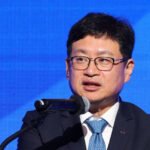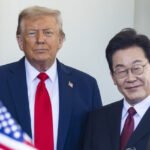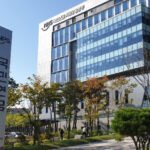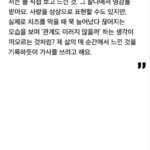SK Hynix’s office in Seongnam, South Korea. Photo: SeongJoon Cho/Bloomberg News
Activist investor Palliser Capital has built a stake in the holding company of highflying artificial-intelligence chip maker SK Hynix Inc. and is pushing for changes to boost its share value, according to people familiar with the matter.
The details
Palliser, a hedge-fund firm based in London, owns more than 1% of SK Square Co., the people said, having built a position in the South Korean investment company over the past two years. That makes Palliser among the company’s top 10 shareholders. The company’s market capitalization is around $8.5 billion.
SK Square is an arm of the sprawling conglomerate SK Group, which is chaired by Chey Tae-won, one of South Korea’s richest men. Inside it lies a crown jewel, a roughly 20% stake in SK Hynix which is worth even more than SK Square itself. The chip maker has become a key supplier of semiconductors used in AI.
SK Hynix dominates in the so-called “high-bandwidth memory,” or HBM, market, and the company supplies chips to Nvidia’s most advanced graphic-processor units. The two types of chips get bundled together to enable the faster data-processing speeds needed for generative-AI tools such as ChatGPT.
The rationale
SK Square is SK Hynix’s largest shareholder, which has helped pull the investment arm’s shares up 64% this year.
Even so, the company trades at a yawning discount to the value of its underlying holdings, especially its stake in SK Hynix, which is worth around $20 billion, more than twice the market value of SK Square. Investors often slap what is called a conglomerate discount on the shares of companies with complex corporate structures.
Palliser has had discussions with SK Square about reducing that discount through more investment and spending, including accelerating the company’s share buyback program.
SK Square has bought back stock previously, including $73 million worth of shares this year.
Palliser has pushed to add board members with more asset-management experience and to tie executive pay to company performance. It wants SK Square to lower its capital costs by using more debt.
The discussions between SK Square and Palliser have so far been amicable. “SK Square has been exchanging views with Palliser regarding long-term strategic direction and shareholder return policies,” said a spokesperson for SK Square.
The context
James Smith founded Palliser Capital in 2021. Photo: Brendan McDermid/Reuters
Palliser was launched in 2021 by James Smith, who headed the Hong Kong operations of Elliott Investment Management. The firm oversees more than $1 billion and recently urged changes at South Korea’s Samsung C&T, the de facto holding company of the Samsung Group.
The firm is up 9% through September after fees, according to a person familiar with the firm’s performance, compared with an 8.2% rise for a broad hedge-fund index compiled by the research firm PivotalPath.
South Korea has long suffered from the so-called Korea discount—or the tendency for stocks to trade more cheaply than in other similar markets. The government launched its “corporate value-up” program this year to encourage companies, many of them family-controlled, to be more shareholder friendly.
Similar corporate-governance reforms in Japan led to a surge in stock buybacks and dividends.
An SK Square spokesperson said the company plans to “increase its corporate value through new investments, portfolio value-up initiatives, and the monetization of noncore assets.”
The company recently installed a new chief executive who plans to reshape the company’s investment portfolio to increase investments in the semiconductor industry.
By Caitlin McCabe
caitlin.mccabe@wsj.com















